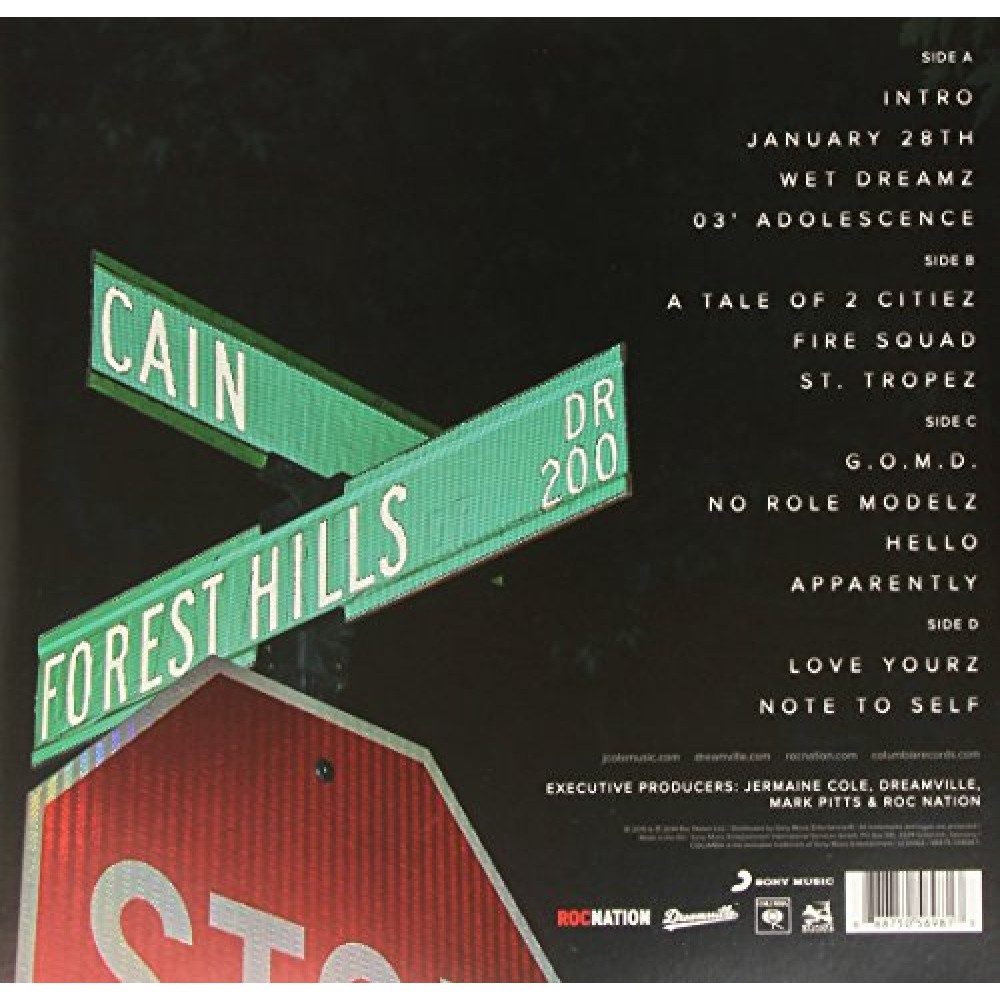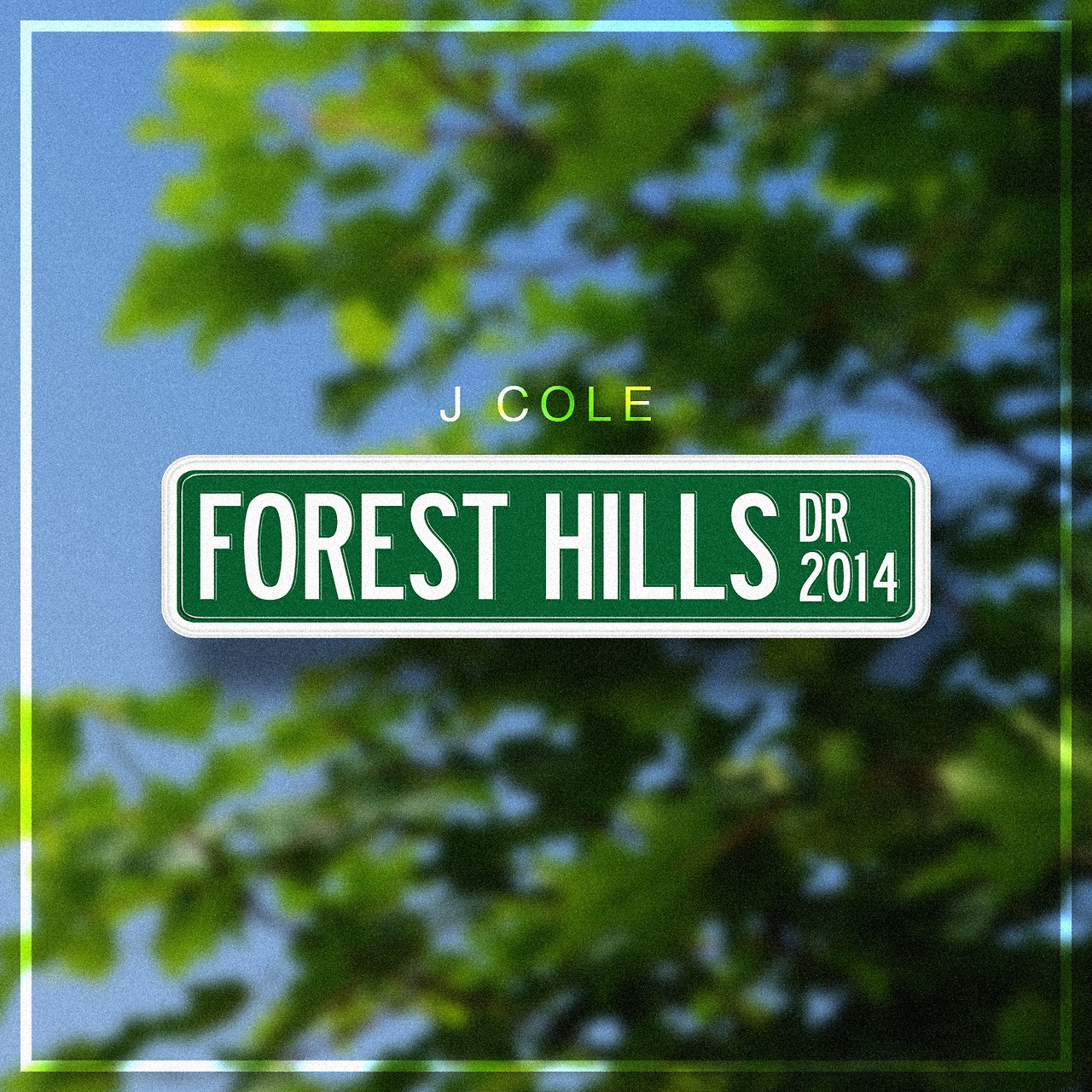Let’s be real, y’all—there’s something magical about 2014 Forest Hills Drive. It’s not just an album; it’s a cultural phenomenon that changed the game for music lovers everywhere. J. Cole’s masterpiece took us on a ride through his life, memories, and aspirations. But what makes this project so iconic? Stick around, because we’re diving deep into the legacy of 2014 Forest Hills Drive, and trust me, it’s gonna be lit.
When J. Cole dropped 2014 Forest Hills Drive back in December 2014, nobody expected it to blow up the way it did. The album wasn’t just about catchy beats and bars—it was about storytelling, authenticity, and vulnerability. Every track felt like a chapter in Cole’s personal diary, and fans couldn’t get enough of it. It resonated with listeners across the globe, proving that great art transcends boundaries.
But hey, let’s not kid ourselves—this album wasn’t just about feel-good vibes. It tackled real issues, from relationships and fame to identity and purpose. And yeah, it even got people thinking about their own lives. So, buckle up, because we’re about to explore why 2014 Forest Hills Drive remains one of the most influential projects in modern music history.
Table of Contents
- The Making of 2014 Forest Hills Drive
- An Overview of the Album
- Key Tracks and Their Significance
- Cultural Impact and Legacy
- Musical Style and Production
- Fan Reception and Criticism
- J. Cole: A Brief Biography
- Influence on Modern Music
- Statistical Data and Insights
- Conclusion: Why 2014 Forest Hills Drive Matters
The Making of 2014 Forest Hills Drive
So, how exactly did J. Cole come up with the idea for 2014 Forest Hills Drive? Well, it all started with a simple concept—returning to his roots. Forest Hills Drive is the street where Cole grew up in Fayetteville, North Carolina. For him, it symbolized home, comfort, and the foundation of who he became as an artist. By naming the album after this place, Cole wanted to remind himself—and his fans—of where he came from.
The production process was no walk in the park, though. Cole worked tirelessly alongside producers like Dre Wiz and Cardo, crafting each beat and lyric with precision. He wasn’t just making music; he was creating a narrative. Each song told a story, whether it was about love, struggle, or self-discovery. And man, did it pay off.
Here’s the thing about 2014 Forest Hills Drive—it wasn’t rushed. Cole took his time, ensuring every detail was perfect. And that dedication showed in the final product. People noticed, and they appreciated the effort. It’s why the album still holds up today, years after its release.
Why Forest Hills Drive?
You might be wondering why J. Cole chose to name the album after a specific address. Honestly, it’s genius. Forest Hills Drive isn’t just a location—it’s a state of mind. It represents stability, family, and the values that shaped Cole’s worldview. By tying his music to this place, he created a sense of authenticity that resonated deeply with his audience.
An Overview of the Album
Alright, let’s break it down. 2014 Forest Hills Drive consists of 13 tracks, each contributing to the overarching theme of the album. From the opening track “Intro” to the closing song “Laws of Gravity,” every moment feels intentional. There’s no filler here—just pure, unfiltered artistry.
One of the standout features of the album is its cohesion. Each song flows seamlessly into the next, creating an experience that feels like a journey. You’re not just listening to music; you’re living through Cole’s memories and emotions. It’s raw, honest, and unapologetic.
Now, let’s talk about the album’s structure. It’s divided into four parts, each representing a different stage of Cole’s life. Part 1 explores his childhood, Part 2 delves into his teenage years, Part 3 focuses on his rise to fame, and Part 4 reflects on his current reality. This chronological approach adds depth to the storytelling, making it relatable for listeners from all walks of life.
Key Tracks and Their Significance
Let’s highlight some of the most memorable tracks from 2014 Forest Hills Drive and why they matter. These songs aren’t just hits—they’re cultural touchstones that continue to influence music today.
1. “Fire Squad”
Who could forget “Fire Squad”? This track was a straight-up banger, featuring Ty Dolla $ign and DJ Premier. It was all about energy, confidence, and celebrating success. But beneath the surface, it also touched on themes of loyalty and trust. Cole rapped about the importance of surrounding yourself with the right people, and that message hit home for many fans.
2. “Wet Dreamz”
Alright, let’s be honest—“Wet Dreamz” became an instant classic. With its smooth production and catchy hook, it dominated the airwaves for months. But it wasn’t just about romance; it also explored the complexities of relationships. Cole’s lyrics challenged listeners to think about what they truly want in love, and that depth set the track apart.
3. “No Role Modelz”
One of the most powerful songs on the album, “No Role Modelz” tackled serious issues like fatherhood and responsibility. Cole spoke candidly about growing up without a father figure and the impact it had on his life. It was a bold move, but it resonated with countless listeners who shared similar experiences. This track proved that music can be both entertaining and thought-provoking.
Cultural Impact and Legacy
There’s no denying that 2014 Forest Hills Drive left a lasting impression on the music industry. It influenced countless artists and inspired a new generation of fans. But its impact goes beyond just music—it’s become a cultural phenomenon that continues to shape conversations about art, identity, and authenticity.
One of the reasons the album resonated so deeply was its relatability. Cole’s lyrics spoke to everyday experiences, from heartbreak to ambition. People saw themselves in his words, and that connection made the album timeless. Even now, years after its release, fans still find meaning in its messages.
Additionally, 2014 Forest Hills Drive played a significant role in elevating J. Cole’s status as a cultural icon. It solidified his reputation as one of the most talented and authentic artists of his generation. And that legacy continues to grow with each passing year.
Musical Style and Production
The production on 2014 Forest Hills Drive was nothing short of exceptional. Cole worked with some of the best producers in the game, including Dre Wiz, Cardo, and Boi-1da. Together, they crafted a sound that was both innovative and nostalgic. The beats were lush, the melodies were captivating, and the overall vibe was unmatched.
What sets this album apart is its ability to blend different genres seamlessly. You’ve got hip-hop, R&B, soul, and even a touch of jazz. It’s a testament to Cole’s versatility as an artist and his willingness to experiment. And let’s not forget the use of live instrumentation—man, that added a whole new level of depth to the music.
Another key aspect of the album’s production is its attention to detail. Every sound, every note, feels deliberate. It’s not just music—it’s an experience. And that’s why it stands out in a crowded industry.
Fan Reception and Criticism
When 2014 Forest Hills Drive first dropped, the response was overwhelmingly positive. Fans praised Cole for his lyrical prowess, emotional vulnerability, and commitment to authenticity. It quickly became one of the most acclaimed albums of the year, earning critical acclaim and commercial success.
Of course, not everyone was a fan. Some critics argued that the album was too introspective or that certain tracks lacked punch. But honestly, those complaints were few and far between. The vast majority of listeners agreed that 2014 Forest Hills Drive was a masterpiece.
What’s even more impressive is how the album has aged. Unlike many projects that lose relevance over time, 2014 Forest Hills Drive continues to resonate with audiences. It’s a testament to Cole’s skill as an artist and his ability to create lasting music.
J. Cole: A Brief Biography
Before we dive deeper into the album’s impact, let’s take a moment to learn more about the man behind the music. J. Cole, born Jermaine Lamarr Cole, is a rapper, songwriter, and record producer from Fayetteville, North Carolina. He rose to fame in the early 2010s with hits like “Work Out” and “Crooked Smile,” but it was 2014 Forest Hills Drive that cemented his status as a legend.
| Full Name | Jermaine Lamarr Cole |
|---|---|
| Born | January 28, 1985 |
| Place of Birth | Frankfurt, Germany |
| Occupation | Rapper, Songwriter, Record Producer |
| Years Active | 2007–Present |
Influence on Modern Music
2014 Forest Hills Drive didn’t just influence J. Cole’s career—it changed the landscape of modern music. Artists across genres began to prioritize storytelling and authenticity in their work, inspired by Cole’s example. It showed that you didn’t have to chase trends to succeed—you could be true to yourself and still connect with millions of people.
Moreover, the album highlighted the importance of cultural representation in music. Cole’s willingness to address issues like race, identity, and social justice paved the way for other artists to do the same. It’s no exaggeration to say that 2014 Forest Hills Drive helped shape the direction of contemporary hip-hop.
Statistical Data and Insights
Let’s talk numbers for a second. 2014 Forest Hills Drive debuted at number one on the Billboard 200 chart, selling over 350,000 copies in its first week. It was certified platinum by the RIAA and spawned several hit singles, including “Wet Dreamz” and “No Role Modelz.” These achievements speak volumes about the album’s impact and popularity.
But here’s the kicker—despite its commercial success, 2014 Forest Hills Drive never compromised on quality. Cole proved that you could make music that was both critically acclaimed and commercially viable. It’s a lesson that continues to inspire artists today.
Conclusion: Why 2014 Forest Hills Drive Matters
As we wrap things up, let’s reflect on why 2014 Forest Hills Drive remains so important. It’s not just an album—it’s a cultural touchstone that continues to influence music and society. J. Cole’s ability to blend personal storytelling with universal themes is unmatched, and his dedication to authenticity sets him apart from his peers.
So, what can you do next? If you haven’t already, go listen to 2014 Forest Hills Drive. Let the music take you on a journey through J. Cole’s life and experiences. And while you’re at it, share this article with your friends and spread the word about this incredible project. Together, let’s keep the legacy alive.
Until next time, keep it real, keep it raw, and keep exploring the world of music. Peace out!


